A Very (Relatively) Brief History of Beyoncé’s Discography
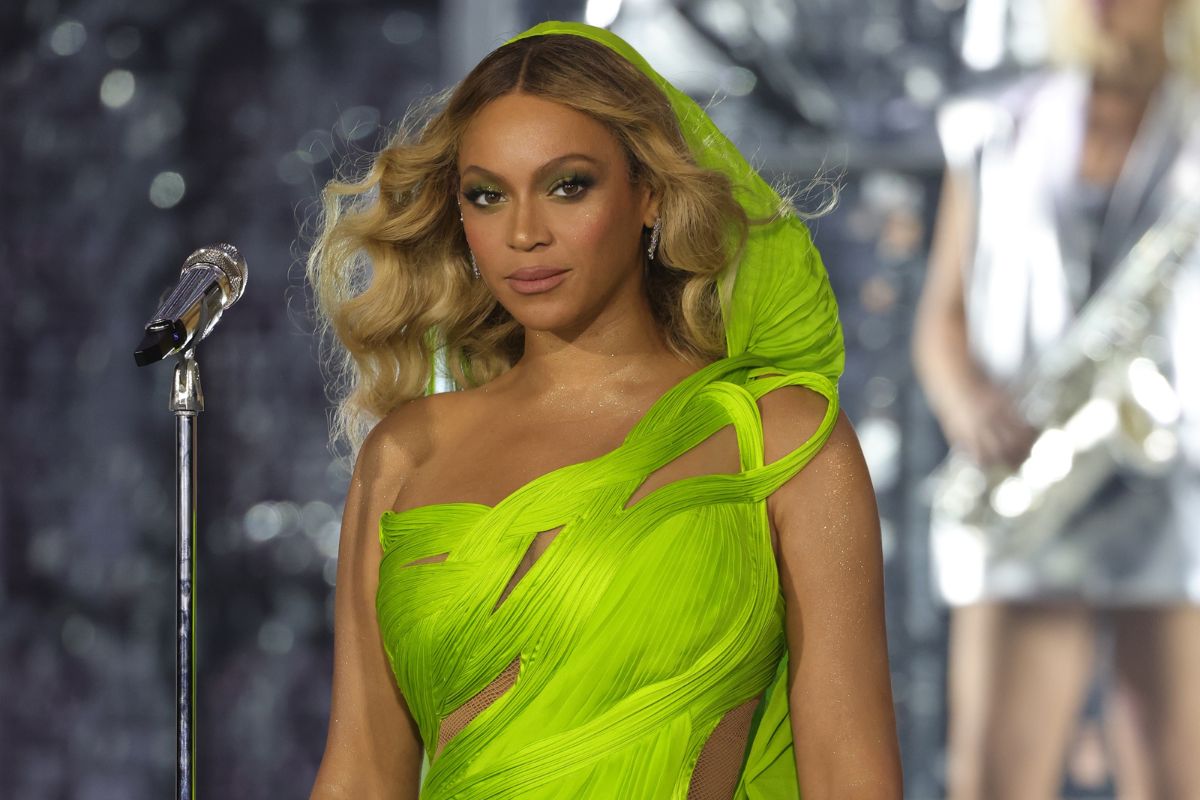
Beyoncé Knowles-Carter almost has as many nicknames as albums. Queen B, Bey, Yoncé, Ms. Carter, and—to some people I’m related to—a servant to Satan. Her 25-plus-year career has produced a number of record-breaking albums and this December will peek some of it in a feature-length concert film. In honor of that and her providing the soundtrack to many of our lives, let’s get into her long discography.
Please note that except for her latest album, I don’t get into the weeds of the producers, that would really warrant its own retrospective from someone more knowledgeable than me. (I’m really hoping Henny does it though.) Additionally, I’m not getting into awards and acclaim for the most part. It’s not relevant and just a cherry on top. While Beyoncé breaks records, she’s still purposely placed in the wrong categories because of her race.
Before she would be known for her solo career, Beyoncé was in the girl pop group Girls Tyme from 1990 to 1997. This group consists of Beyoncé, Kelly Rowland, LaTavia Roberson, and LeToya Luckett. Eventually, the group’s managers (Beyoncé’s parents) would replace the Roberson and Luckett with Michelle Williams. Before then, Columbia (and the Knowles’ Music World Entertainment) signed the original quartet under the name Destiny’s Child in 1997.
The Destiny Child’s Era and the films that followed

Destiny’s Child released five albums—one of which was a Christmas album. This includes Destiny’s Child (1998), The Writing’s on the Wall (1999), Survivor (2001), 8 Days of Christmas (2001), and Destiny Fulfilled (2004). The first and final are probably the most famous with singles (as someone born in the mid-90s and didn’t listen to them until after Beyoncé’s solo career) like: ‘Bills, Bills, Bills,’ ‘Bootylicious,’ ‘Bug-a-boo,’ ‘Cater 2 U,’ ‘Independent Women Part 1’ (& ‘Part 2’), ‘Lose My Breath,’ ‘Say My Name,’ ‘Soldier,’ and ‘Survivor.’
This isn’t the only time Beyoncé’s worked collaboratively on a project. In 2018, she co-released Everything is Love with her husband, rapper Jay-Z, as The Carters. This is where the track ‘Apeshit’ lives in her discography. In 2019, Beyoncé released the album The Lion King: The Gift. The album was used to produce music for The Lion King remake and Black is King. Here, she assembled Black artists from across the diaspora, especially those in Africa and North/South America. Here Beyoncé sang many songs, too, including ‘Spirit.’ Also, the tear-inducing anthem, featuring her daughter Blue Ivy, ‘Brown Skin Girl.’
Aside from starring in films, Beyoncé has released soundtracks and films. Knowles earned her directorial credit in the music documentaries Life is But a Dream (2013) and Coachella performance with Homecoming (2016). Because the latter featured a very HBCU-themed performance to Black audiences as opposed to just the very-white demographic of the controversial music festival, fans were more than excited for its release. Additionally, Beyoncé directed the visual for Lemonade (2016) and Black is King (2020). Each project came with an album featuring the live and/or remixed versions of her popular tracks. Many expect the December release of Renaissance to be huge as it’s her first solo concert theatrical release.
Dangerously in Love (2003)

This was Bey’s first solo album and featured several high-profile collaborators. This includes Jay-Z, Sean Paul, Big Boi, Sleepy Brown, Luther Vandross, and Missy Elliot. Singles and beloved tracks include ‘Crazy in Love,’ ‘Naughty Girl,’ ‘Baby Boy,’ ‘Me, Myself, and I,’ and ‘Daddy.’ At the time, Beyoncé was competing with a lot of female fellow pop and R&B artists. It’s also the last time this would really happen until Rihanna (sort of) years later. Beyoncé also stayed with Columbia Records after the dissolution of Destiny’s Child and maintains a working relationship with the studio.
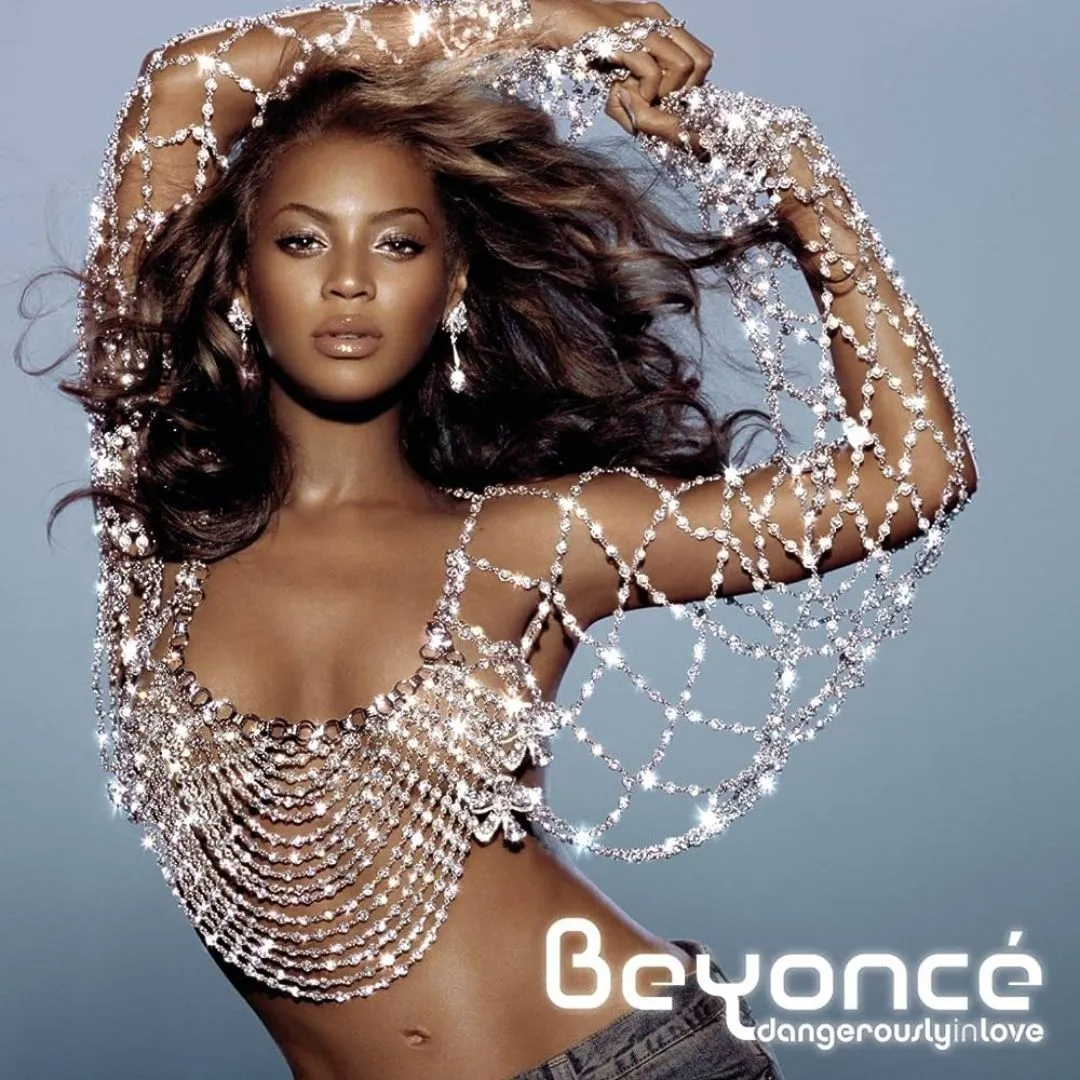
Some of Dangerously in Love‘s singles also aligned with Beyoncé’s burgeoning film career. A career move that may have started with Carmen: A Hip Hopera in 2001, but really kicked off the following year with Austin Powers in Goldmember. Here, the song ‘Work It Out’ appeared in the film and her debut solo album. She recorded one-plus songs on each of the movies she appeared in in the ’00s. Excluding deluxe editions, the films include The Pink Panther (with ‘Check on It’), The Fighting Temptations (with seven tracks), Dreamgirls, (with thirteen tracks), and Cadillac Records (with three tracks).
B’day (2006)
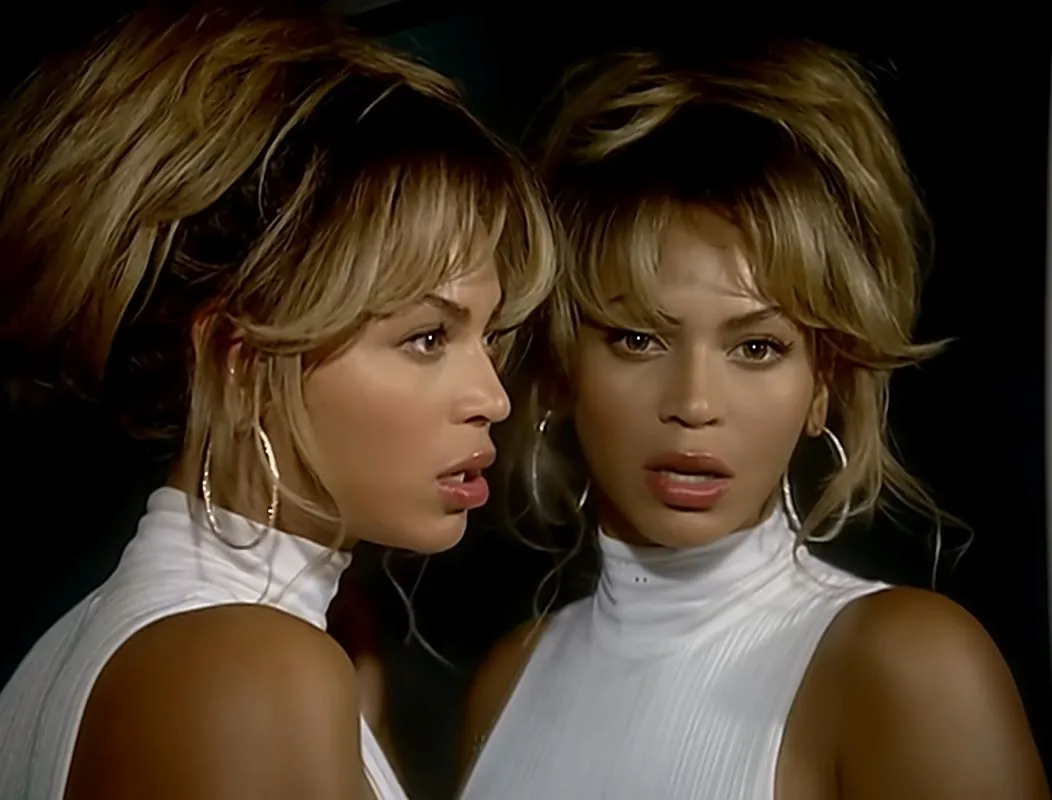
Because B’day was the first Beyoncé album I owned a physical copy of, it holds a special play in my heart. The regular edition featured collabs with the usual suspects: Jay-Z and sister Solange. Popular tracks from this include: ‘Déjà Vu,’ ‘Upgrade U,’ ‘Freakum Dress,’ ‘Ring the Alarm,’ and ‘Irreplaceable.’ This album also featured some important, historical promotional elements mostly through the song ‘Get Me Bodied.’ Former First Lady Michelle Obama teamed up with Beyoncé by using the six-minute, extended mix to help promote exercise. This multi-prong effort to help address childhood obesity functioned to compliment former President Barack Obama’s fight for the Affordable Care Act.
Before there was Ivy Park, Beyoncé and her mother, Tina Knowles, had House of Deréon in Houston. Launched alongside this B’day, the (former) fashion house sought to blend a variety of Black styles across generations marketing it as “where the sidewalk and catwalk meet.” This wasn’t out of nowhere. For all of Destiny’s Child and the beginning of Beyonce’s solo career, Tina Knowles made all the costumes. Rowland recently stated that fashion houses refused to dress them because of their size and that they were too “country.”
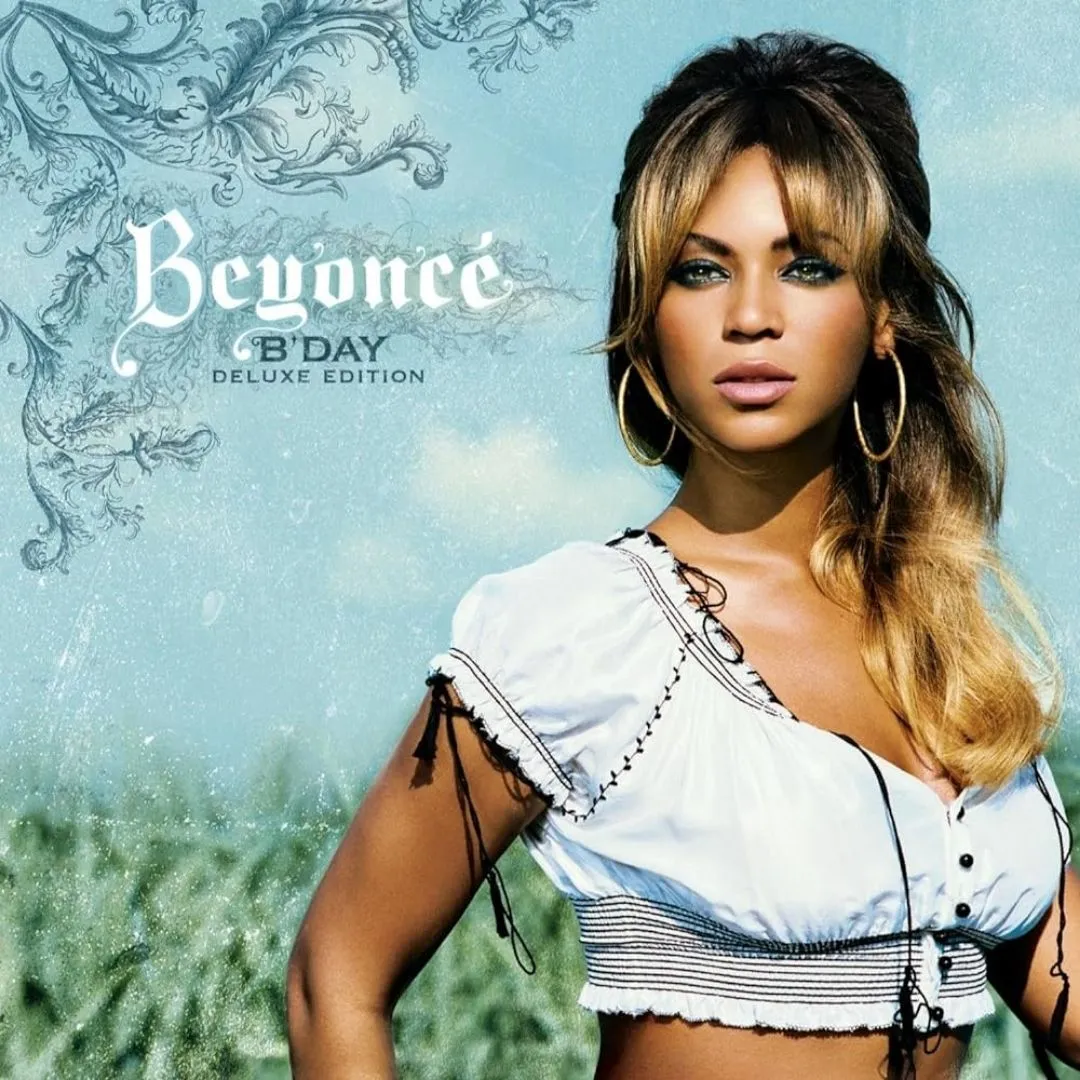
The Deluxe Edition featured collabs with Mexican artist Alejandro Fernández, and Shakira (Columbian). The second disc was entirely in Spanish—including ‘Listen/Oye’ from the Dreamgirls soundtrack. There’s even a Norteña remix of ‘Irreplaceable!’ Raised in Houston, Texas, Beyoncé was very much inspired by the Mexican-American and Latine cultures of the region. Like many who grew up in the southwest in the 1980s-forward (including me), she grew up listening to Selena Quintanilla-Pérez. If the Queen of Tejano music hadn’t died so young, I’m sure Selena and Beyoncé would’ve done an album together.
I Am… Sasha Fierce (2008)

Beyoncé’s third album featured two parts and each had a very different sound. The first half was more influenced by folk music and alternative sound with lots of ballads and ballad-lites. The second half was … interesting. Yes, the album did give us bops like ‘Single Ladies (Put a Ring on It),’ ‘Halo,’ ‘Sweet Dreams,’ and ‘If I Were a Boy.’ Let’s also not forget the iconic two-part collaboration with Lady Gaga ‘Video Phone’ and ‘Telephone.’ (The real ones are waiting for the second music video to drop.) However, as a concept album, it was clunky and gave us my least favorite Beyoncé-song ‘Diva.’ (This song ties closely with ‘Run the World (Girls)’ as my least favorite Beyoncé song to date.) Other than the dawn of the Girl bossing time in pop culture, ‘Diva’ came from her alter-ego ‘Sasha Fierce’ for the second half of the album.
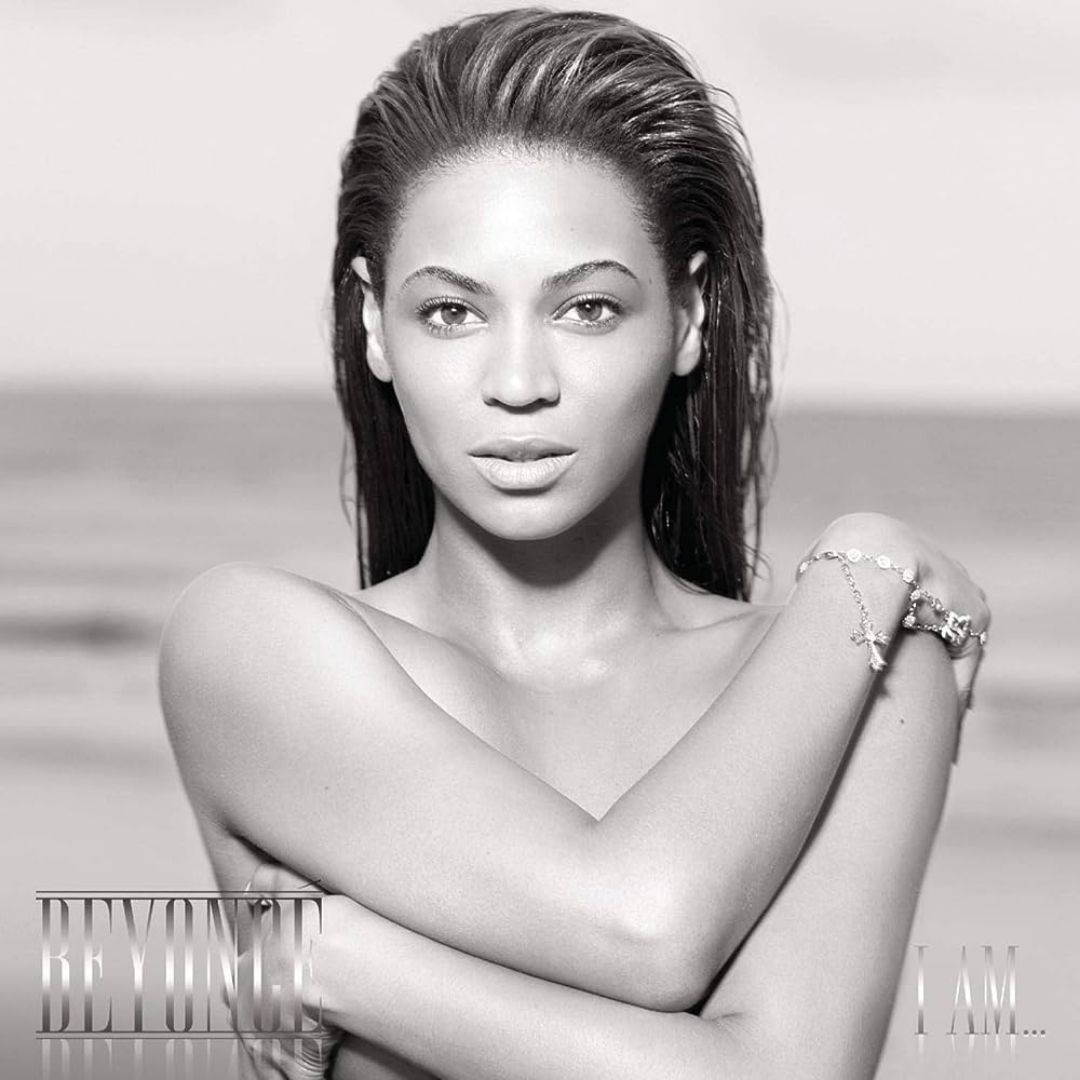
Many read the introduction of Sasha as a marketing gimmick. Sure, maybe. However, there’s probably more to it. Sasha looked more like a character Beyoncé could embody in controlled spaces as she entered a new phase of her life. Earlier that year, Beyoncé married her now-husband Jay-Z. (Something I’ll always side-eye as they began dating when she was 18 and he 31.) In the eyes of the public, this limited the ability for Beyoncé to sing about certain topics. Sasha could be brash and talk about singledom, whereas Beyoncé (the wife) had to stay in a certain lane. Think of the response when women show their bodies and people unironically shame them under the phrase “you’re a mother.” Short-lived Sasha looked like a shield against that even before Beyoncé had her first child. This felt concept album clumsily sought to straddle this silly, but expected reaction.
4 (2011)

4 was the first album produced at least partly by her founded record label, Parkwood Entertainment. Minus one song, it also began the “no skip” stage of Beyoncé’s reign. While this whole album gets lots of play in my house, some singles include ‘Love On Top,’ ‘Dance For You,’ and ‘Best Thing I Never Had.’ Southern hip-hop legend André 3000 with ‘Party’ serves as the only feature. Other than him, it’s just Beyoncé and that’s more than okay. Unfortunately, it understandably marked the end of albums with her belting out for multiple tracks. Between the runs on ‘Love on Top,’ aging, and her interest in exploring different genres, Beyoncé would want a bit of a vocal rest after several vocally intense albums.
In addition to being her fourth album, ‘4’ was chosen because of the significance it has to her personal life. Beyoncé and many in her personal life share a fourth day of the month (or April) as a birthday. She married Jay’z on the 4th and, later, they named their first child, Blue Ivy, with the Roman numerals. What started as an homage also accidentally fueled the growing anti-Black Illuminati conspiracy theories (itself rooted in antisemitism) that started around this time.
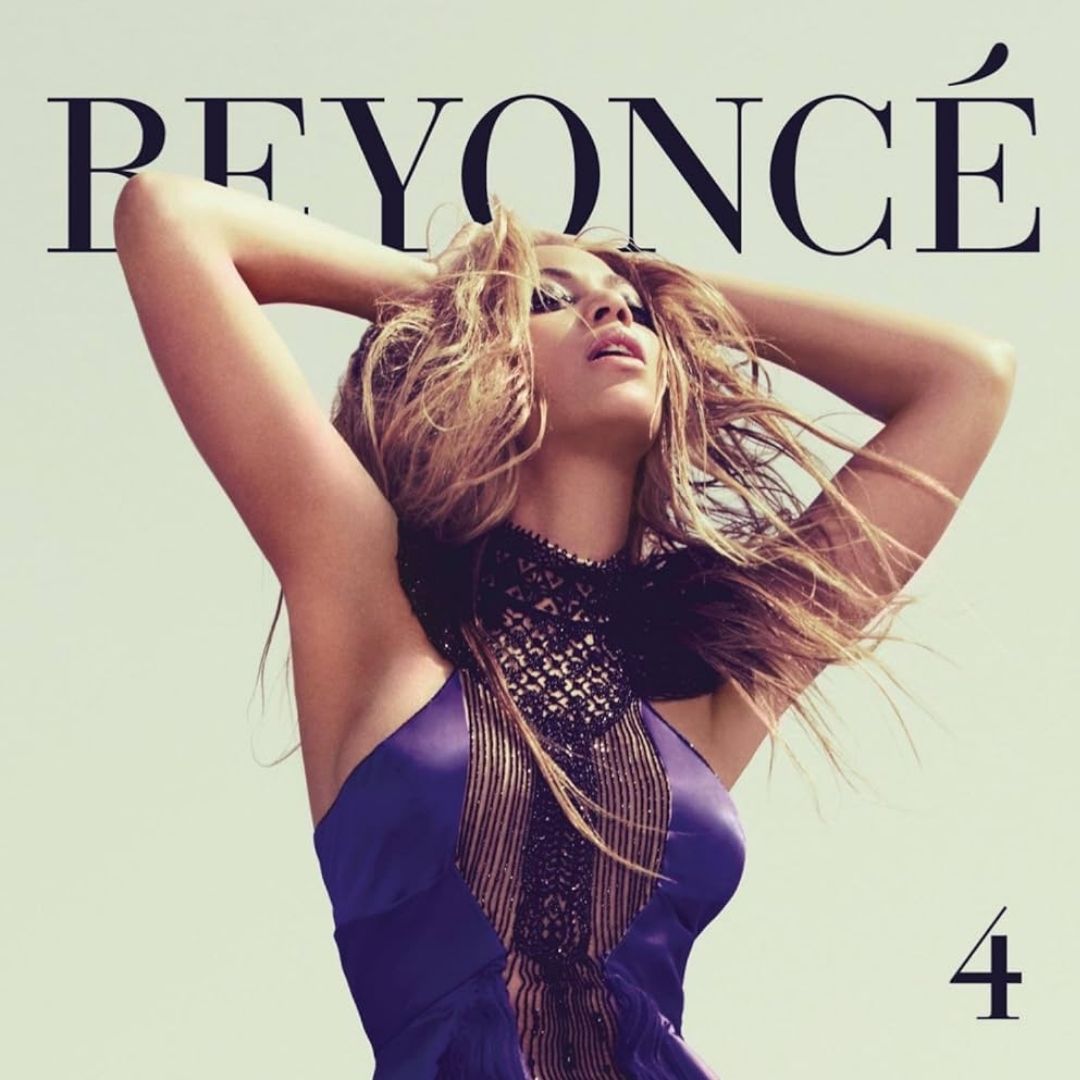
Beyoncé largely ignored them until 2016 when the first single began with “Y’all haters corny with that Illuminati mess.” While this coincided with the rise of viral (of terrorism abroad and homegrown), there’s a more simple explanation. People felt the need to explain Beyoncé’s success. It was clear by that time, she was going to become one of the best-selling Black woman artists of all time. While some looked for logical explanations, others restored to the age-old trope of claiming she sold her soul for her talent. I’m losing brain cells rehashing this … let’s move on.
BEYONCÉ (2013)

This album changed the music industry and solidified Beyoncé as the superstar she was. The self-titled, fifth studio album was dropped with no promotional rollout whatsoever to avoid leaks. She posted a single surprise post to Instagram before going back to her regular uploads. Additionally, BEYONCÉ was dropped on a Friday night as opposed to a Tuesday, when most major labeled release singles and albums. This created a trend that exists to this day. It also gave a signal to other major artists (like Taylor Swift) that they can and should set their own terms with music labels. In an excellent episode of Vulture’s podcast Into It, music journalists Danyel Smith and Sam Sanders got into the economic and cultural impact of just this element of the day before Renaissance‘s release.
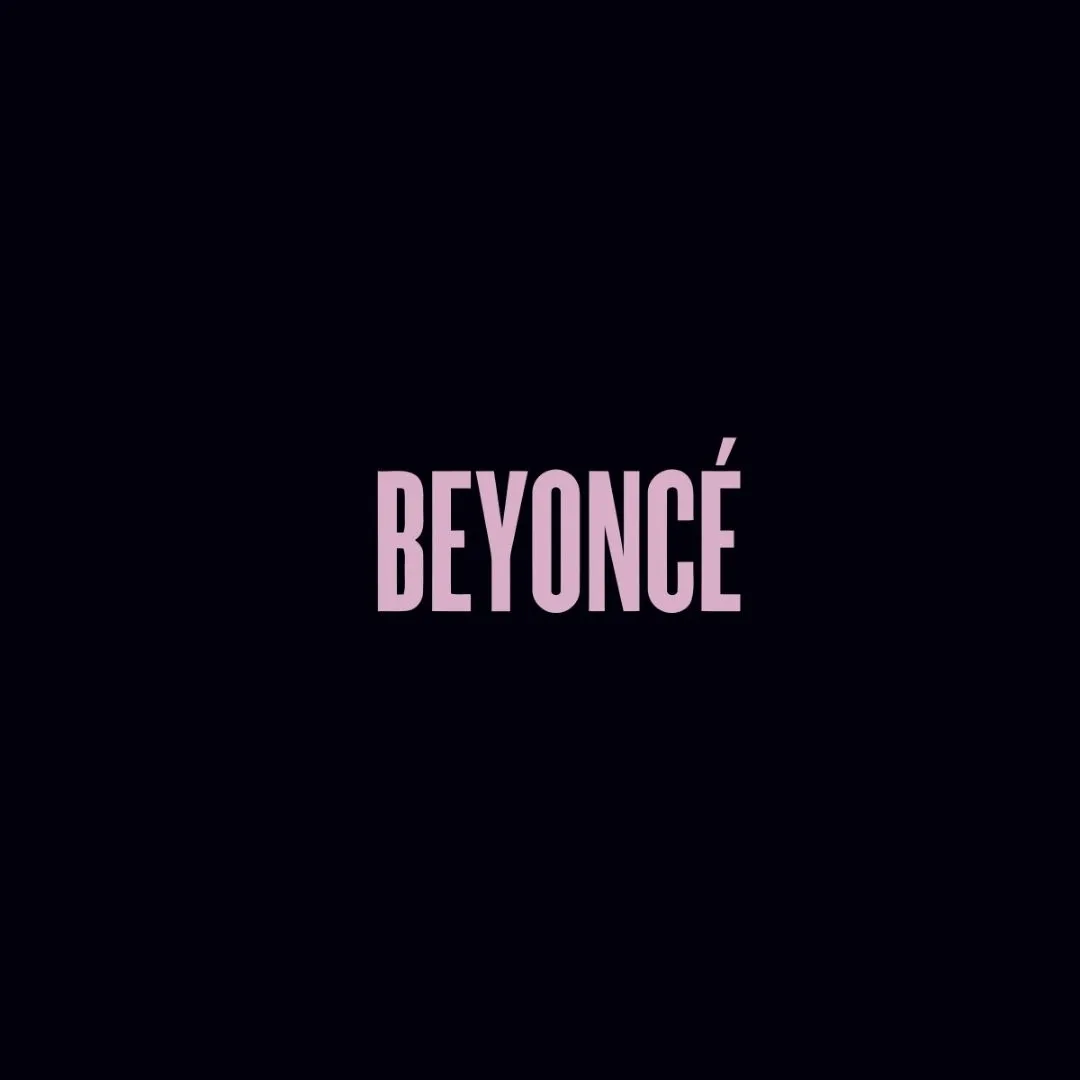
As for the album itself, some influential include ‘Pretty Hurts,’ ‘Drunk in Love,’ ‘Partition,’ ‘Superpower,’ ‘7/11,’ ‘XO,’ and ‘Blue.’ Not only did it garner the first ‘explicit’ label for a Beyoncé album, it was one of the most political yet. BEYONCÉ featured anti-capitalist themes, more overt sexual content, and clear calls for feminism. This may seem unimpressive, however, the early 2010s was deep in the weeds of Gamergate. The press was still asking famous people on red carpets if they would consider themselves a ‘feminist’ without major feet shuffling and non-answers. Beyoncé featured audio from of Chimamanda Ngozi Adichie‘s TED talk “We Should All Be Feminists” (pre-TERF era) in ‘***Flawless.’
Still, cavalier references to Ike Turner’s abuse of Tina Turner and allusion to the predatory relationship between former President Bill Clinton and then-intern Monica Lewinsky grew ire from some feminists. Everyone had something to say about this album. The praise and criticism Queen Bey got from her self-titled album was peanuts next to her next album.
Lemonade (2016)

Beyoncé has been and will always be a Black woman. While her light complexion and career choices allowed her to carefully navigate pop music, her wider acceptance hinged to an extent on white comfort. The commentary about her, her artistry, snubs, and more make that very clear that they say she is Black. However, Beyoncé was an “acceptable” Black woman until this album. Here Beyoncé became “Black, Black” to everyone not-Black. And of course, backlash came with that.
Before getting what sparked that, let’s get into a genre-defying album. Popular tracks include ‘Hold Up,’ ‘Don’t Hurt Yourself’, ‘Sorry,’ ‘Freedom,’ and ‘Formation.’ Features included Jack White, The Weeknd, James Blake, and Kendrick Lamar. Additionally, Lemonade featured the aforementioned, feature-length visuals and was an exclusive to her musician-owned steaming platform (Tidal) for three years. The night before she was to perform at the Super Bowl 50 Halftime show alongside Coldplay and Bruno Mars, the music video for Lemonade‘s first single, ‘Formation’ went viral.

Because ‘Formation’ was uploaded as unlisted on YouTube (only), you couldn’t listen to it unless you got a link from an article or social media post. It still blew up! The stunning music video offered a tonal shift and lots of references to her Creole and Texas roots. (Is it really a Bey album without one reference to Texas?) Lemonade also directly criticized the state violence against Black people of New Orleans during/following Hurricane Katrina and via the police. By the morning, police unions called for people to boycott the Halftime performance. At the performance (which kicked off a world tour), her set paid homage to the Black Panther Party via their costuming. Some Black feminists seized the moment to encourage fans to read work that directly addresses the issues highlighted by Beyoncé.
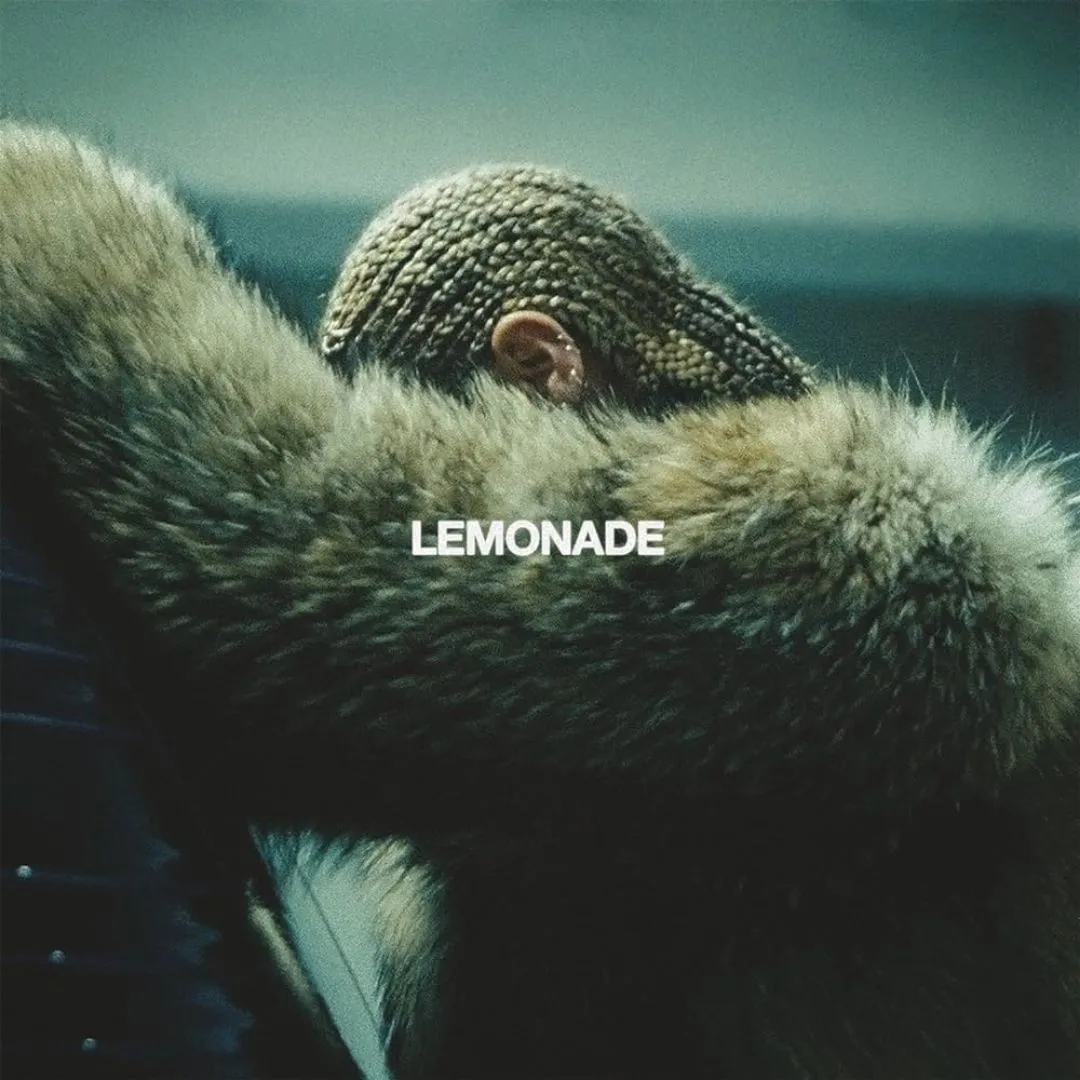
Not to downplay the growing rise of antisemitism, the overt backlash to advancements made by POC and women, and the utter failure of the Democratic Party … however, you can draw a direct line from the vitriol behind backlash to this performance/song and the waves of support given to former-President Donald Trump’s election. All this from one song. Meanwhile, many Lemonade tracks have their own viral story attached—including ‘Sorry”s “Becky with the good hair” debacle. Also, the power brokers in country music largely ignored the song ‘Daddy Lesson.’ Much to the chagrin of the haters, The Chicks (a group that was infamously “canceled” after they criticized George Bush’s invasion of Iraq in 2003) brought her on stage to perform at the CMAs.
Beyoncé didn’t allow this backlash to slow down her artistry or engage with politics. This album surely meant she peaked right? I mean, how can she possibly top this let alone get close from a cultural or musical perspective?
Renaissance (2022)

In 2022, Beyoncé decided that she was not only going to get into a whole new genre. She was going to engage in a full album rollout for the first time in nine years. After Beyoncé announced Renaissance Act 1, she released the single ‘Break My Soul.’ Other singles and popular tracks include ‘Cuff It,’ ‘Energy,’ ‘Alien Superstar,’ ‘Heated,’ ‘Video’s Groove,’ ‘Church Girl,’ and ‘Pure/Honey.’ From the themes of sex, and drugs, and expressing the desire to throw out all responsibility, Renaissance exhaled revelry and freedom. It was not only a response to isolate the (ongoing) COVID-19 pandemic but to conformity. Beyoncé dedicated this album to her gay “uncle” (older cousin), Jonny, who died during the AIDs crisis.
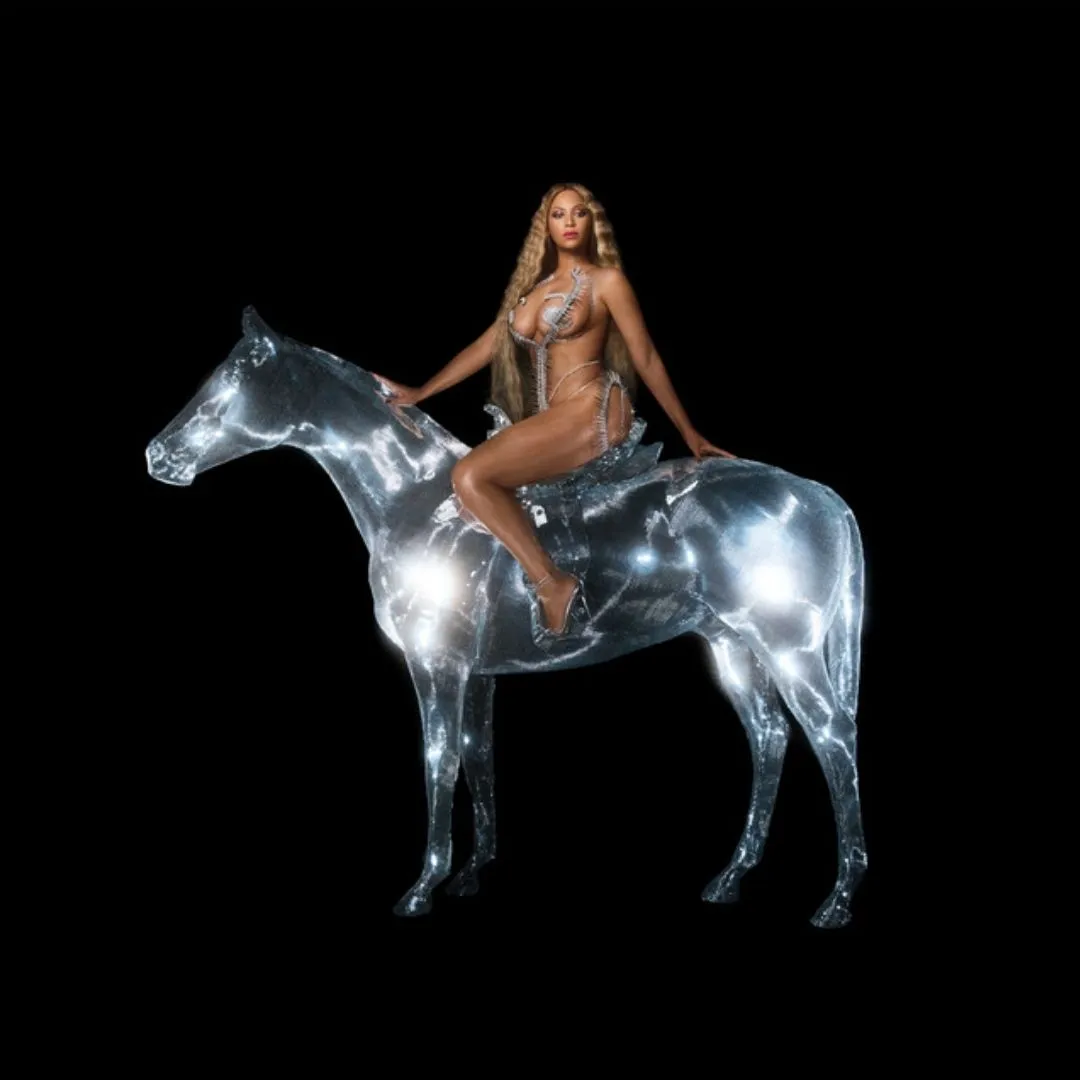
Beyoncé specifically samples, references, and pulls artists creating an album of dance, disco, and house music from the 1970s forward. Music that came out of Black, queer clubs in the South and the ballroom scene led by Black, brown femmes in the North. As a thematic concept album (rather than a series of singles the studio pushes for), the song blurs into one another. There’s almost a pleasurable disorientation as if there’s a DJ transitioning to each song. There’s almost no time to rest. Still, there are touches of pop and R&B because it is a Beyoncé album.
Maybe it’s because this was barely released a year ago because I can’t put my finger on why, but this feels like another turning point in Beyoncé’s career. Marketed as ‘Part 1,’ I can’t wait to see what comes next. Well, after the world tour.
(featured image: Kevin Mazur/WireImage for Parkwood)
Have a tip we should know? [email protected]
